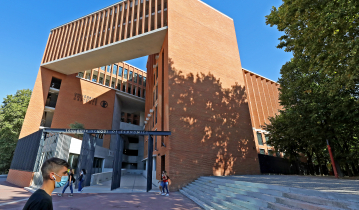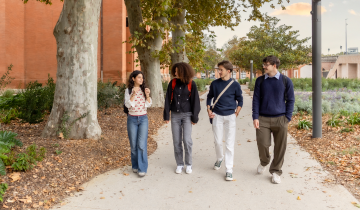Tong SU will defend his thesis on Wednesday 15th November, 9:00 am Room 429 (Manufacture des Tabacs) on «Three Essays in Information Economics».
Supervisor: Christian Hellwig, TSE researcher, University of Toulouse Capitole.
Memberships are:
- Bruno BIAIS, TSE researcher, University of Toulouse Capitole
- Christian HELLWIG, TSE researcher, University of Toulouse Capitole.
- Filip MATEJKA, Researcher (CERGE-Prague)
- Alessandro BONATTI, Researcher (MIT-Sloan)
Abstract :
My thesis studies the mechanism of endogenous information acquisition and provision, and applies it into three applications.
The first chapter (joint with Georgy Lukyanov) develops a model in which the sender strategically communicates with a group of receivers whose payoffs depend on the sender’s information. It is shown that, in the presence of coordination frictions, conflict of interests between the sender and the receivers arises endogenously, in spite of the sender’s benevolence. As a result, equilibrium communication is imperfect: extremely good or bad news get disclosed, while relatively “neutral” information is withheld. Consequently, an exogenous bias in the sender’s preferences can improve communication and raise welfare.
The second chapter (joint with Takuro Yamashita) considers the problem of optimal information disclosure in mechanism design where the principal can commit to his disclosure policy as well as to his mechanism. We first provide a characterization result for the optimality of the full disclosure policy. Applying this result, in a generalized auction setting we show that the principal (seller) always prefers to disclose all the relevant information to the agents. In a bilateral trade setting where his objective is surplus, under a mild condition on the environment, he does not find optimal to reveal all the information. In a voting application where voters choose between either the status quo or a reform, we show that the principal should reveal all information regarding to the aggregate benefit from the reform but reveal no information about individual benefit for each agent.
The third chapter shows that, in contrast to conventional idea that agents with heterogenous beliefs will agree in the long-term as they learn from new information, their beliefs may diverge if agents’ learning is rationally inattentive. When attention is costly, agents optimally choose to acquire potentially new information which they believe most likely to come, leading to a conformism learning. Hence, agents whose initial beliefs are far from the truth will react less often compared to agents whose beliefs are closer to the truth, leading to a divergence in agents’ beliefs in expectation. I characterize the condition for belief divergence and show that it is more likely to happen when the truth is more extreme and the attention cost is moderate.



